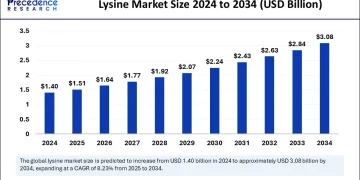The Cybersecurity Maturity Model Certification (CMMC) framework is designed to protect sensitive information, especially within the defense industrial base. By establishing a set of cybersecurity domains, the CMMC ensures that organizations adhere to specific security practices and controls to safeguard Federal Contract Information (FCI) and Controlled Unclassified Information (CUI). These domains cover a broad spectrum of cybersecurity activities that are essential to achieving and maintaining CMMC compliance.
CMMC 2.0 has streamlined the process by reducing the original five levels to three, but the emphasis on cybersecurity domains remains critical. For organizations seeking to attain certification, understanding these domains is key to ensuring that all CMMC requirements are met during a formal CMMC assessment. Each domain focuses on a different aspect of cybersecurity and contributes to the overall protection of an organization’s information systems. A CMMC consultant can help guide organizations through these domains, ensuring that all necessary controls are properly implemented.
Access Control: Regulating Who Has Access
One of the foundational domains of CMMC is Access Control (AC), which ensures that only authorized individuals have access to sensitive data and systems. This domain is essential for preventing unauthorized users from accessing information that could compromise the integrity and security of an organization. CMMC compliance at any level requires organizations to implement strict controls over who can access certain systems and data, whether that access is physical or digital.
Access control measures include implementing multi-factor authentication, limiting access based on user roles, and ensuring that users have the minimum necessary permissions to perform their tasks. Organizations must also establish protocols for terminating access when users no longer require it, such as when employees leave the company or change roles. By adhering to the CMMC requirements for access control, companies ensure that they can protect critical data from both internal and external threats.
A CMMC consultant can assist organizations in developing and enforcing these access control policies, helping businesses assess their current practices and identify gaps that may exist in their approach to managing user access. This expertise ensures that access controls align with the CMMC requirements and that they are documented for the CMMC assessment.
Incident Response: Preparing for Cyber Threats
The Incident Response (IR) domain is another critical area within the CMMC framework, focusing on an organization’s ability to detect, respond to, and recover from cybersecurity incidents. CMMC cybersecurity mandates that organizations must have well-defined incident response procedures in place to address potential threats such as data breaches, ransomware attacks, or phishing attempts. Effective incident response is crucial for minimizing the impact of a cyberattack and ensuring business continuity.
Incident response involves several key components, including detecting the incident, reporting it to the appropriate personnel, and taking immediate action to contain the threat. Organizations are also required to maintain detailed records of any cybersecurity incidents and analyze those records to improve future responses. CMMC Level 3, in particular, places a strong emphasis on proactive monitoring and rapid response capabilities, making incident response planning a priority.
Organizations seeking to meet the CMMC requirements must ensure that their incident response plans are up to date and thoroughly tested. A CMMC consultant can help businesses develop and refine these plans, ensuring they are aligned with the specific CMMC level an organization is targeting. Regular testing and updates are essential to ensuring readiness when a real cybersecurity threat arises.
Risk Management: Identifying and Mitigating Cyber Risks
Risk Management (RM) is one of the most comprehensive and important domains within the CMMC framework, addressing how organizations identify, assess, and mitigate cybersecurity risks. Risk management ensures that companies can proactively identify vulnerabilities and potential threats before they become major issues. By adhering to the CMMC requirements for risk management, organizations demonstrate that they have a systematic approach to evaluating their cybersecurity risks and are taking steps to mitigate them.
CMMC compliance in this domain requires organizations to conduct regular risk assessments, identify threats to their information systems, and develop strategies to manage those risks. This includes not only technical measures, such as installing firewalls or antivirus software, but also administrative controls like security training for employees. Risk management must be an ongoing process, with periodic reviews and updates as new threats emerge and as the organization’s systems evolve.
A CMMC consultant can help guide organizations through the complexities of risk management, offering insights on how to perform effective risk assessments and prioritize vulnerabilities. This proactive approach ensures that organizations stay ahead of cyber threats and maintain compliance with the cybersecurity maturity model certification.
Security Awareness and Training: Educating the Workforce
Security Awareness and Training (AT) is another critical domain within the CMMC framework, emphasizing the role of employee education in protecting an organization’s sensitive information. CMMC cybersecurity extends beyond technical measures; it also requires that employees understand their role in maintaining cybersecurity and follow best practices in their daily activities. This domain focuses on ensuring that all personnel, particularly those handling sensitive information, are trained in cybersecurity protocols and can recognize potential threats.
For organizations aiming for higher CMMC levels, continuous training and awareness are particularly important. Employees need to be educated on current cyber threats, such as phishing attacks or social engineering tactics, and understand how to respond appropriately to suspicious activity. Organizations are required to document these training efforts and ensure that all staff members receive regular updates on cybersecurity best practices.
A CMMC consultant can help organizations develop tailored training programs that meet the specific requirements of their CMMC level. This ensures that employees are well-prepared to prevent cybersecurity incidents and that the organization’s overall security posture is strengthened.
Configuration Management: Securing IT Infrastructure
The Configuration Management (CM) domain addresses the processes used to establish and maintain the security of an organization’s information systems. Proper configuration management ensures that all hardware and software assets are identified, documented, and regularly updated to prevent security vulnerabilities. This domain is critical for CMMC compliance, as improper configuration can expose systems to cyberattacks.
Organizations must implement formal configuration management policies to govern how systems are configured, updated, and maintained over time. This includes applying security patches, updating software regularly, and monitoring changes to system configurations. The goal is to ensure that all systems remain secure and compliant with CMMC requirements, even as technology and cyber threats evolve.
A CMMC consultant can guide organizations through the process of establishing and maintaining configuration management policies. This includes conducting audits to ensure that systems are correctly configured and making recommendations for improving the organization’s approach to configuration management.
Understanding the various cybersecurity domains within the CMMC framework is essential for organizations aiming to achieve compliance. From access control and incident response to risk management and security awareness training, each domain plays a vital role in safeguarding sensitive information and ensuring that businesses meet the cybersecurity maturity model certification standards. Partnering with a CMMC consultant can provide organizations with the expertise needed to successfully implement these domains, meet CMMC requirements, and prepare for a formal CMMC assessment.










